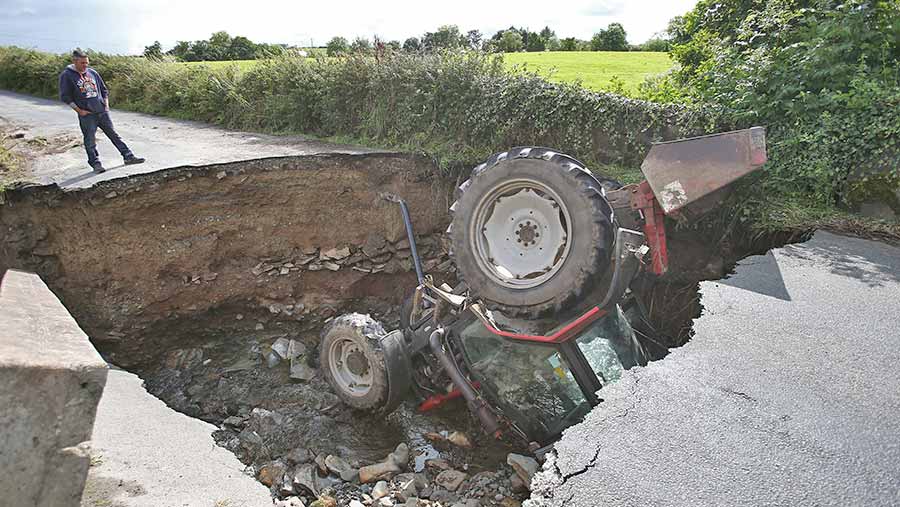Flood-stricken NI farmers could receive 70% CAP advance
 © Niall Carson/ PA Images
© Niall Carson/ PA Images Northern Irish farmers could receive an extra 20% of their Common Agricultural Policy (CAP) support payments in advance to help their businesses survive the recent flooding.
The Department for Agriculture, Environment and Rural Affairs (Daera) said it will liaise with the Department for Environment, Food and Rural Affairs (Defra) to seek permission from the EU to allow it to raise the level of advanced payment it can make from 50% to 70%.
A Daera spokesperson said: “An increase in the level of advanced CAP payment will help alleviate some of the costs [of the flooding] and therefore the department will work to encourage the EU to make these payments.”
See also: Farms hit by NI flash floods told to claim ‘force majeure’
Daera said it remains committed to making advance payments from 16 October to as many farmers as possible with verified claims.

© Niall Carson/ PA Images
Serious situation
It has instructed affected farmers to submit a force majeure application as soon as possible.
Major infrastructure was destroyed, and roads and fields flooded after parts of Northern Ireland saw 63% of the average August rainfall in just nine hours on Tuesday (22 August).
Co Londonderry was worst affected by the rainfall, while 61mm of rain fell at Lough Fea in Co Tyrone in just 24 hours.
Ulster Farmers Union (UFU) president Barclay Bell said that although the damage is localised, it is a very serious situation for those affected.
Mr Bell said much of the damage would not be covered by insurance, and the UFU is therefore investigating all possible options for financial aid, such as an extension of the existing emergency financial assistance scheme for domestic properties to non-domestic businesses, such as farms, or a farming recovery fund such as was previously available to flood-hit farmers in England.
Many farmers lost huge numbers of livestock to the flood waters, such as 55,000 adult chickens owned by producer Moy Park at two farms in Co Tyrone, while others have lost acres of farmland through landslides.
A significant proportion of this year’s cereal crop is yet to be saved, but harvesting conditions are deteriorating every day and drying costs are mounting.
Advice available
In light of the extreme conditions, Daera has adopted a flexible approach to late notification of animal losses from affected premises. Farmers should contact their local Daera Direct Office to seek advice (see Where to find support).
Mr Bell said the UFU’s immediate priority was ensuring practical help is available to those farmers who are at risk of losing their livelihoods after fields and sheds were destroyed, and crucial access roads and bridges washed away.
The union is already holding clinics along with Daera, Cafra and Rivers Agency staff to provide specific individual help to farmers.
Daera said it has a network of advisers through its Direct Offices on hand to provide support to those who need it.
In addition, its Area Based Scheme staff, along with Cafre Development Advisers will be at a number of impacted locations next week, on 4 and 5 September to provide face-to-face support on payments, farm business management and planning.
The locations will be advertised on the department’s website.
Where to find support
For advice on animal health and welfare, farmers should contact Daera on 0300 200 7840. General enquiries should be made through the customer helpline 0300 200 7852 or email: daera.helpline@daera-ni.gov.uk.
Cafre Advisers can be contacted on 0300 200 7843.
The NIEA water pollution hotline is 0800 807 060. It is available 24 hours a day, 365 days a year. It also provides a dedicated emergency pollution email address at emergency-pollution@daera-ni.gov.uk.
